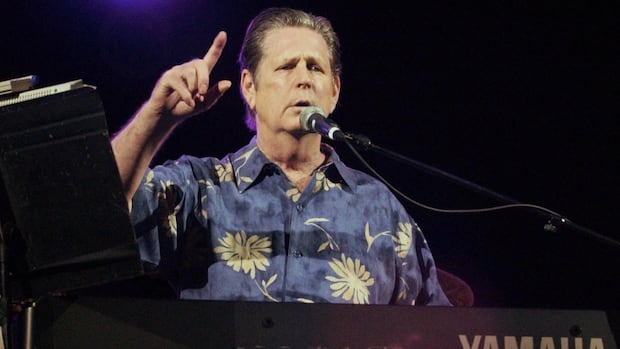Brian Wilson, whose virtuoso vocal and musical arrangements led the Beach Boys to commercial and critical success, making them one of America’s most influential bands, before personal demons waylaid his life and career for several years, has died.
The death of Wilson, who would have turned 83 next week, was announced by his family on his social media platforms. In recent months, the family said that Wilson had a “major neurocognitive disorder” and was taking medication for dementia.
“We are heartbroken to announce that our beloved father Brian Wilson has passed away,” the statement read. “We are at a loss for words right now. Please respect our privacy at this time as our family is grieving. We realize that we are sharing our grief with the world. Love & Mercy.”
Wilson — along with younger brothers Dennis and Carl, cousin Mike Love and friend Al Jardine — formed the iconic group in Southern California in mid-1961. Their songs of teenage love and youthful pursuits on beaches and in cars resonated with a youthful Boomer audience around the world, crystallizing an image of a golden California just as it became the largest U.S. state.

“They made me love America so much more because they existed,” Elton John said while inducting the Beach Boys into the second-ever Rock & Roll Hall of Fame class in 1986.
After scoring Top 10 hits with Surfin’ U.S.A. and Surfer Girl, the Beach Boys topped the charts in 1964 with I Get Around, scoring subsequent No. 1 hits later in the decade with Help Me, Rhonda and Good Vibrations. Pet Sounds, from 1966, a fixture near the top of lists of rock’s greatest albums, included the lasting classics God Only Knows and Wouldn’t It Be Nice.
“I’ve often played Pet Sounds and cried,” Paul McCartney said in an interview included in the liner notes of 1997’s The Pet Sounds Sessions box set reissue.
Lasting impact
The band’s intricate harmony vocals and orchestral flourishes — “teenage symphonies to God,” Wilson famously described them — influenced many artists through subsequent decades, including R.E.M., the High Llamas, and She & Him.
But like few other bands, the Beach Boys’ impact transcended music.
The late historian Kevin Starr, the state librarian who wrote 10 volumes on California’s evolution from the 19th to 21st centuries, described the Beach Boys as “one of the most important mythic brandings of Southern California since the creation of the orange crate label: a branding that would put … youth-oriented culture of surfing, beach life, cruising, parties, school and romance at the forefront of the California identity.”
Behind the clean-cut image, darkness and strife often lurked. All of the Wilson brothers struggled with drug use at various times, with Dennis Wilson unwittingly making the acquaintance of members of the Manson Family just over a year before their murderous rampage. The Beach Boys once adapted a song written by Charles Manson, who aspired to a career in music.
In his new memoir, “I Am Brian Wilson,” the former Beach Boys leader opens up on mental illness and the dangers of psychedelic drug use.
Above all, Brian Wilson’s struggles with his mental and physical health dominated their offstage narrative. Wilson retreated from touring after a late-1964 breakdown on an airplane, and four years later, became overwhelmed during recording sessions for Smile, his ambitious followup to Pet Sounds.
“I was able to get a hold of these drugs and they messed my mind up,” he told the BBC in a 1976 interview. Wilson retreated from public life, and even the studio in his own house, for long stretches, at one point ballooning up to 300 pounds. For two separate stints between 1975 and 1991, the later-disgraced psychologist Eugene Landy helped Wilson get back to physical health, but at the cost of exerting Svengali-like control of his client.
Wilson’s travails have been compelling enough to spawn several books, a half-dozen documentaries, two miniseries and the 2014 motion picture Love & Mercy, in which Paul Dano and John Cusack portrayed Wilson at different stages of his life. The 1994 Canadian film Whale Music, based on the Paul Quarrington novel of the same name, featured a wounded and reclusive Wilson-like rock star, while the Barenaked Ladies song Brian Wilson evoked the artist’s lost years.




